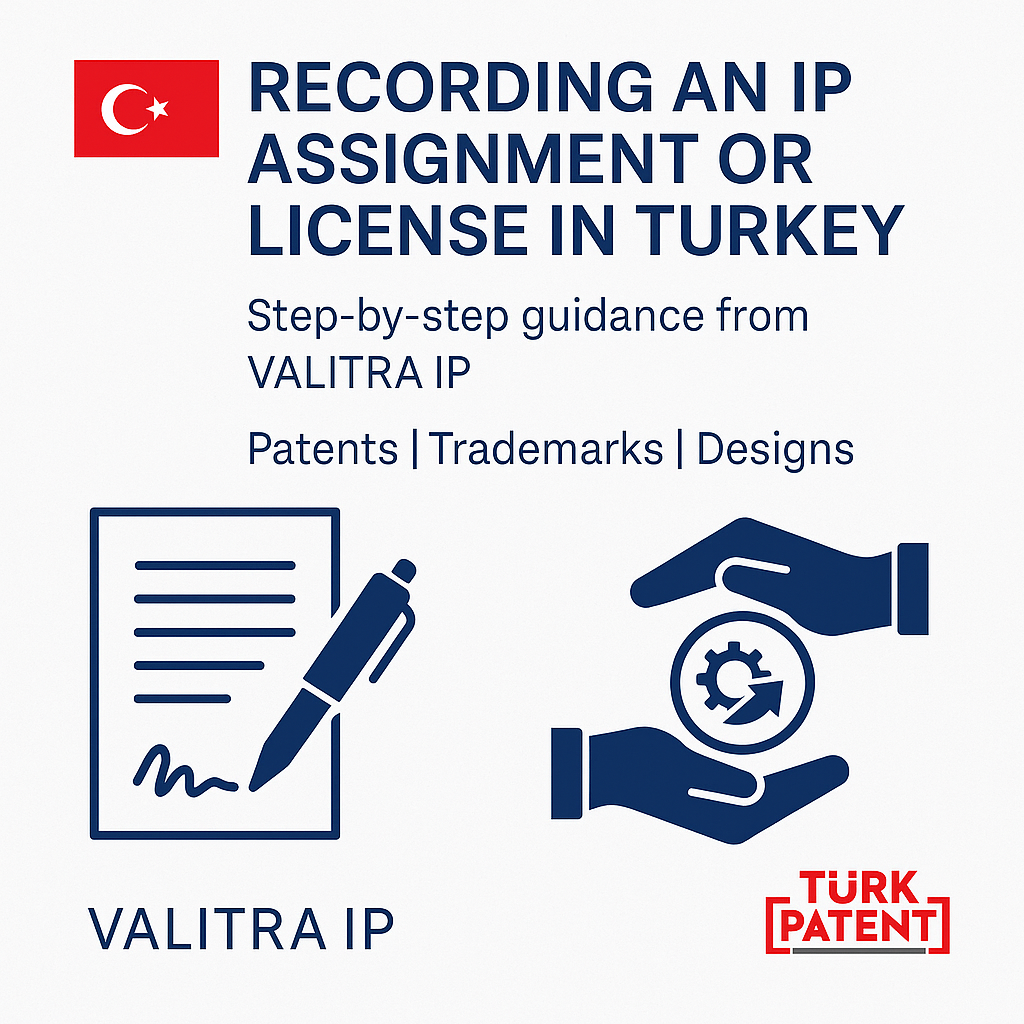A Simple Guide to Recording IP Assignments and Licenses in Turkey
So you’ve acquired intellectual property rights in Turkey or want to license them to someone else? Great! Now you need to make it official with the Turkish Patent and Trademark Office (TÜRKPATENT). This guide will walk you through the process of recording assignments and licenses.
Why Should You Record Your Assignment or License?
Though not legally required, recording your IP transfers with TÜRKPATENT is strongly recommended because:
- It officially recognizes your new ownership or rights
- You’ll need it for future actions like renewals or enforcing your rights
- It prevents potential disputes down the road
What Can You Record?
You can record various IP changes with TÜRKPATENT:
- Assignments: Complete transfers of ownership
- Licenses: Both exclusive and non-exclusive agreements
- Other changes: Mergers, court decisions, inheritance, etc.
This applies to all main types of IP rights in Turkey:
- Patents
- Utility models
- Trademarks
- Industrial designs
Recording Process: A Step-by-Step Guide
Step 1: Get Your Documents Ready
For Assignments:
- An assignment deed signed by both parties
- Must be notarized
- If signedoutsideTurkey, it needs an apostilleorlegalization
- Must include consideration or a transfer fee declared in the request form
- Power of Attorney for your Turkish representative (no notarization needed)
Important Note on Partial Transfers:
- For trademarks: You can transfer all or just part of the goods/services. If partial, the assignment agreement must specify which goods/services are being transferred along with their class numbers.
- For designs: All or partial transfer of multiple designs is possible. For partial transfers, the design sequence numbers of the transferred designs must be specified in the assignment agreement.
For Licenses:
- A license agreement or declaration signed by both parties
- Can be a simplified version focusing on the essential terms
- Power of Attorney for your Turkish representative
Remember: All non-Turkish documentsneedTurkishtranslationsby a sworntranslator.
Step 2: Find a Local Representative
If you’re based outside Turkey, you must work with a Turkish patent or trademark attorney. They’ll handle everything through the EPATS online system and communicate with TÜRKPATENT on your behalf.
Step 3: Submit Your Application
Your Turkish attorney will:
- Upload all necessary documents to the system
- Pay the required fees
- Monitor your application throughout the process
No need to mail physical copies unless specifically requested.
Step 4: Wait for Completion
With all documents in order, TÜRKPATENT typically completes the recordal within 2-4 weeks. If anything’s missing or unclear, they’ll issue a notice, and your attorney will address it.
What About Fees?
- Officialfees:Depends on thetype of IP and recordal
- Attorney fees: Vary by service provider
Final Thoughts
Recording your IP assignments and licenses in Turkey is straightforward when you have the right documents and local representation. While not mandatory, it’s a smart investment to protect your rights and prevent future complications. Need help with a recordal or want to ensure your documents meet Turkish requirements? We’re here to help—just reach out to our team at VALITRA for assistance.



